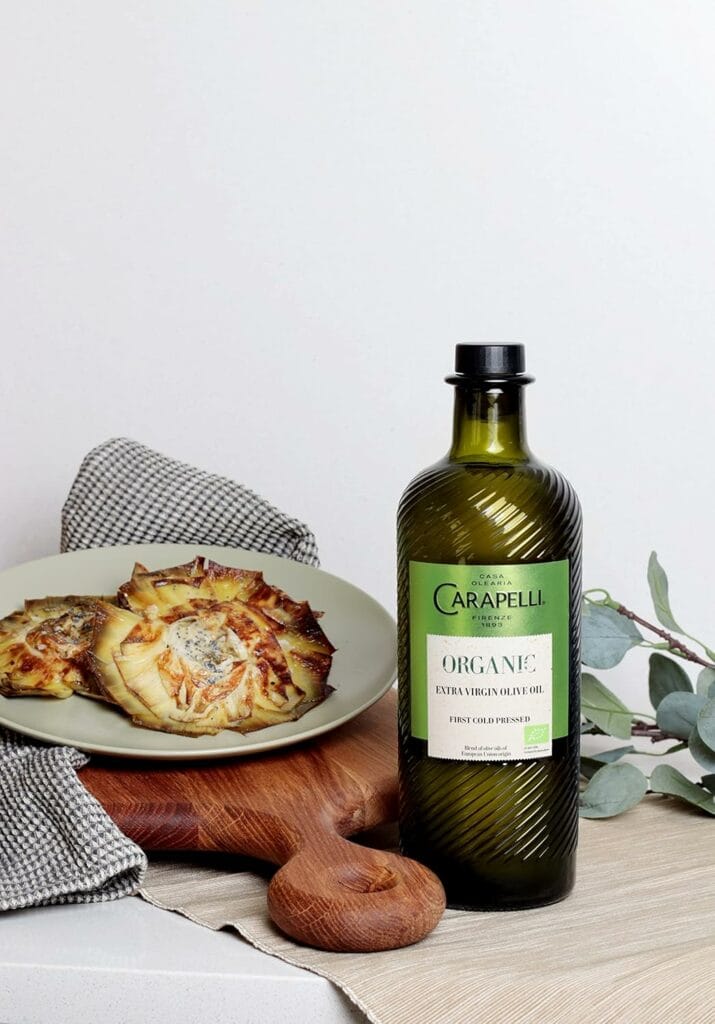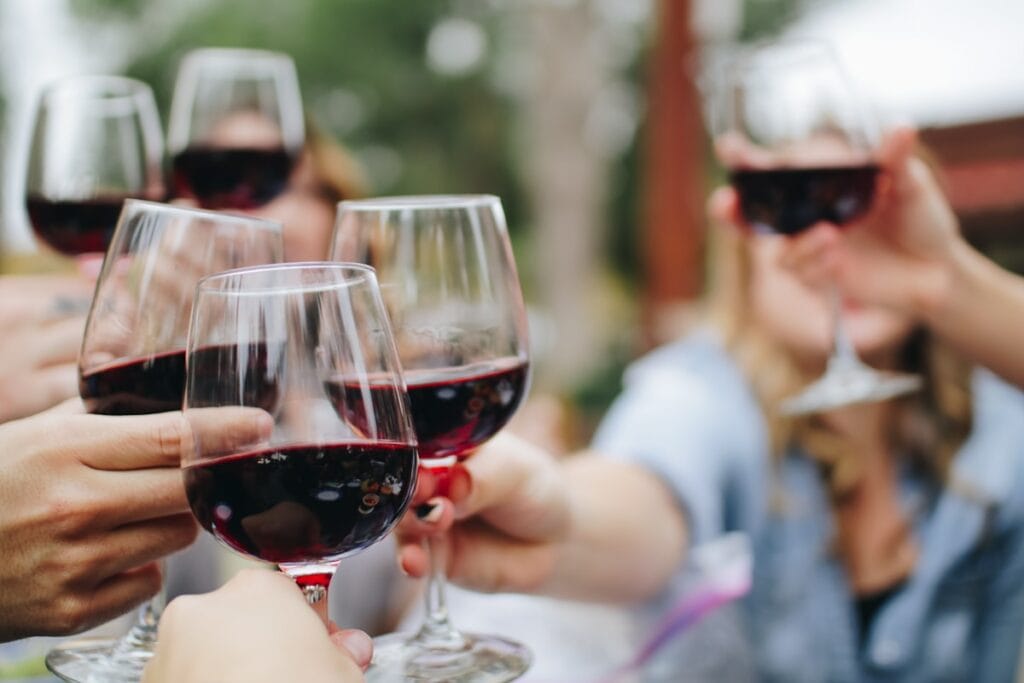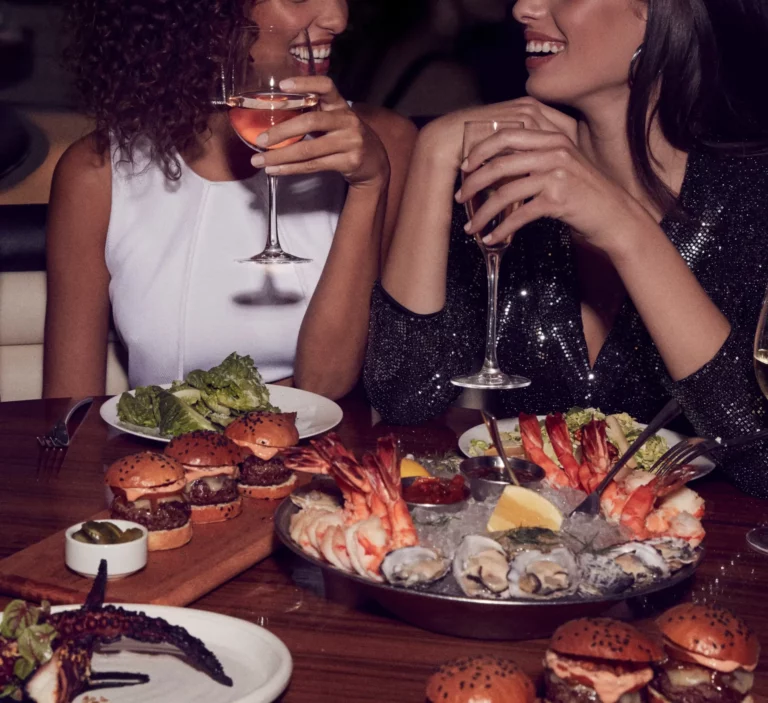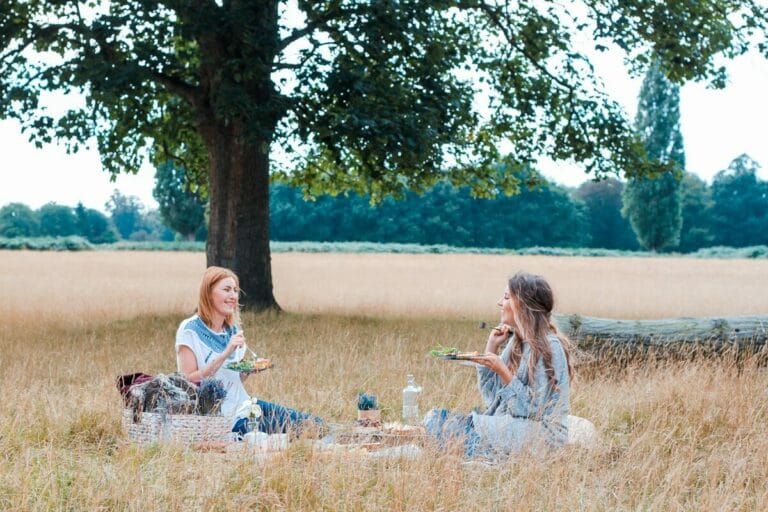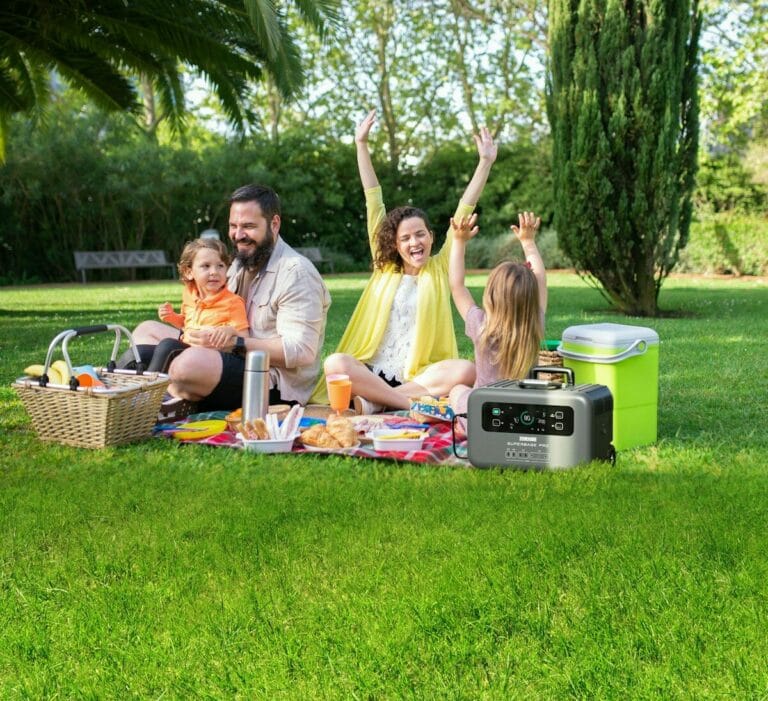How to Oil your Longevity with Fresh Liquid Gold From A Dark Bottle
Our Food editor looks into a life where longevity, happiness, connection and purpose come together naturally, preferably around a table with plenty of Extra Virgin Olive Oil and good company.
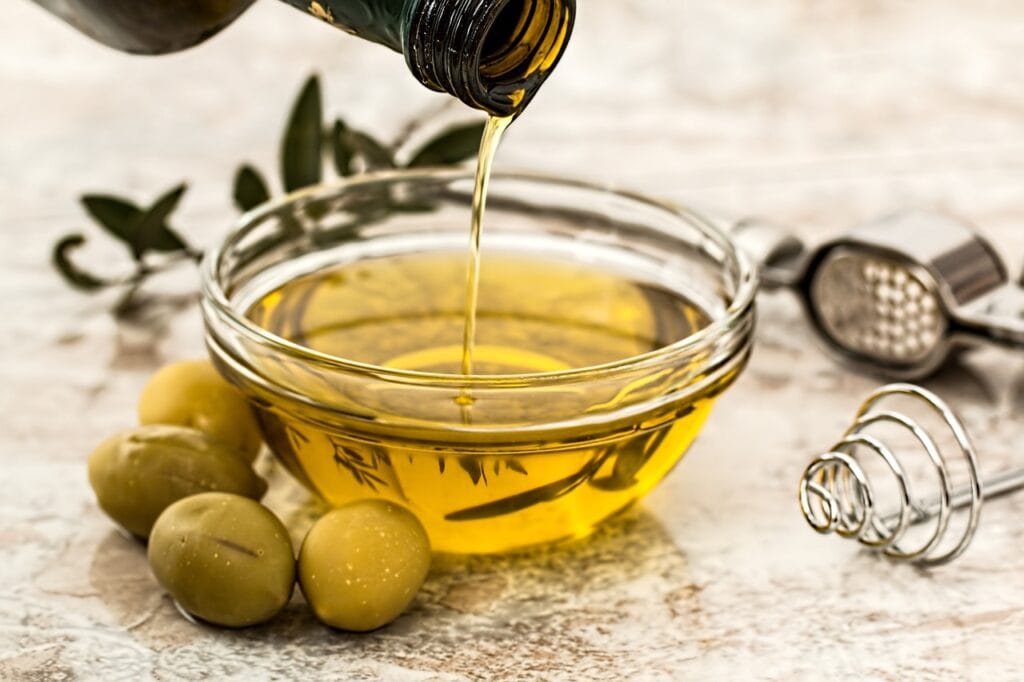
Last week, while having fresh baked bread with my 92-year-old grandmother in her sun-washed kitchen in Sardinia, I had one of those moments that changed everything.
There she was, spry as ever, drizzling virgin olive oil over crusty bread with the same fine stream applied from a dark bottle I’d watched her do a hundred times before. But this time was different. I’d just finished reviewing a recent study about extra virgin olive oil and longevity and suddenly it hit me – I wasn’t just seasoning my food. This is a daily ritual that might explain why she, like everybody else in this village, seemed to dance with time rather than fight it.
Sardinia isn’t just another beautiful piece of Italian haven – it’s one of the world’s rare Blue Zones, where people regularly live past 100 with remarkable vitality. In nonna’s village, centenarians aren’t medical marvels; they’re a common sight, still tending to their gardens, walking to the market and stopping for ad-hoc long, loud conversations in the piazza.
The magic, I’ve learned, lies in their daily rhythms. Mornings begin with a small glass of freshly pressed olive oil – a tradition nonna swears by. Lunch is the main event, a leisurely affair that stretches past two hours. “Mangiare insieme è vivere insieme,” she often says – to eat together is to live together. Every meal is an excuse for connection, with olive oil playing a starring role in almost every dish.
The science now backs up what my nonna-in-law has known all along. National Institutes of Health revealed something that made me drop my wine glass (metaphorically, of course –
I’m not wasting good Cannonau, the local red wine also known for its longevity benefits): people who consume just half a tablespoon of olive oil daily showed a 28% lower risk of dementia-related death.
That’s about the same amount I watched her absentmindedly drizzle over her morning bread. What makes this study particularly worth mentioning today is its focus on dementia-related mortality rather than just cognitive decline. This broader scope gives a new perspective on how dietary choices may influence not only the progression of neurodegenerative diseases but also mortality risk directly associated with them.
How Virgin Olive Oil Protects your Longevity
Olive oil, especially extra virgin olive oil, is a powerhouse of antioxidants, polyphenols and healthy fats—all of which have known neuroprotective benefits. These components help reduce oxidative stress and inflammation, two key factors linked to neurodegeneration. Here’s a breakdown of some of the main ways virgin olive oil benefits brain health:
Rich in Monounsaturated Fats: These healthy fats help improve blood flow, which is crucial for optimal brain function. The high content of oleic acid in olive oil has been shown to enhance cellular repair and reduce inflammation.
Polyphenols and Antioxidants: Virgin olive oil contains phenolic compounds, including oleocanthal, which can cross the blood-brain barrier and help protect the brain from inflammation and oxidative damage. This protection is essential in preventing the cellular damage linked to dementia and other neurodegenerative diseases.
Blood Sugar and Insulin Regulation: When promoting stable blood sugar levels, virgin olive oil supports metabolic health, which is recognized as critical for brain health. Poor blood sugar regulation is a risk factor for cognitive decline and dementia, and olive oil’s role in mitigating this risk could be one of its most valuable assets for neurological health.
In nonna’s kitchen, extra virgin olive oil isn’t just an ingredient – it’s a way of life. The locals here use it with an almost religious reverence. Every fall, the entire village celebrates the olive harvest, or “la raccolta.” Families gather to pick olives and take them to the communal press, where the first pressing is celebrated like liquid gold. The fresh, peppery oil, or “olio nuovo,” is drizzled over everything from the simple breakfast fettunta (grilled bread rubbed with garlic) to the evening minestrone made with vegetables from their terraced gardens.
But it’s not just about the oil itself – it’s about how it’s used as part of a larger food culture. Here, meals follow a rhythm as old as the gnarled olive trees dotting the hillsides:
- Breakfast is simple: crusty bread dipped in olive oil, sometimes with fresh tomatoes and herbs
- Lunch begins with raw vegetables dressed in oil (pinzimonio), followed by a small portion of handmade pasta or grain (often fregola, the local semolina pasta)
- Dinner is light and early, typically vegetable-based with plenty of beans and greens, always finished with a drizzle of raw oil
Local women age with a grace that defies time. Nonna still has remarkably youthful skin, which she attributes to “good genes, good oil, and never rushing a meal.” The science suggests she’s right – olive oil’s high levels of antioxidants and vitamin E fight oxidative stress, while its monounsaturated fats help maintain skin elasticity.
While we can’t all move to a Sardinian village (though believe me, I’ve considered it), we can adopt their wisdom. Here’s how I’ve started working it into my own routine:
- Morning ritual: Start with a spoonful of good olive oil, followed by breakfast
- Lunch like a Sardinian: Make it your main meal, eaten slowly and preferably with others
- The sacred drizzle: Finish every cooked dish with a splash of raw, good quality olive oil
- Simple snacking: Keep bread and olive oil on hand instead of processed snacks
- Beauty boost: Add a tiny drop of olive oil to your nighttime moisturiser (nonna’s secret weapon)
Choosing Your Liquid Gold
Not all olive oils deserve a place in your kitchen. As nonna taught me (rather sternly), when it comes to olive oil, you want the real thing. Look for:
- Extra virgin olive oil in dark bottles
- A harvest date (the fresher, the better)
- A peppery kick at the back of your throat (that’s the polyphenols – the good stuff)
- DOP certification if it’s Italian (Denominazione di Origine Protetta)
The village itself looks like an open book. Small piazzas dot the narrow streets, each with a few benches where elderly residents hold court, sharing village news and watching children play. These spaces, I’ve learned, aren’t just charming – they’re crucial to the social infrastructure that keeps people engaged and active well into their 90s and beyond.
“You see that bench?” nonna asked me, pointing to a worn stone seat outside the local church. “That’s where I meet my friends every morning after Mass. We solve all the world’s problems there.” she added with a wink. These daily encounters, seemingly casual, create a powerful web of social support that researchers now recognize as crucial for longevity.
In Sardinian Blue Zone communities, the concept of “noi” (we) takes precedence over “io” (I). This shows up in countless ways:
- Multi-generational living: Three or four generations often share one home or live within walking distance
- Shared responsibilities: Everyone has a role, keeping even the oldest members actively engaged
- Community rituals: From olive harvesting to wine making, major tasks are community events
- Daily check-ins: Neighbours look in on each other daily, often sharing a coffee or small glass of wine
- Shared meals: The table is never set for one – meals are always an opportunity for togetherness
When you first arrive in the village, you will be amazed at how long meals could last. A simple lunch might stretch to three hours, but you soon realise these aren’t just meals – they are masterclasses in stress reduction and community building. Research shows that sharing a meal with others:
- Lowers stress levels
- Improves digestion
- Encourages eating more slowly
- Provides emotional support
- Creates opportunities for problem-solving and advice-sharing
Perhaps most striking is how the elderly are viewed here. Rather than being relegated to the sidelines, older adults are the heart of the community. They’re the keepers of traditions, the advisors on everything from recipes to relationships, and often the most socially connected members of society.
“In America people seem to fear getting old. Here, we look forward to it. More wisdom, more respect, more time with friends – what’s not to like?”
Nonna
Creating Your Own Blue Zone
While we can’t all live in a Sardinian village, we can adopt their principles of social connection:
- Make meals an event: Host regular dinners, even if simple
- Create rituals: Start a walking group or weekly coffee date
- Build your village: Cultivate relationships across age groups
- Share skills: Teach what you know, learn what you don’t
- Prioritise face-to-face: Replace some screen time with people time
- Start small: Even a shared coffee break can build meaningful connection
As my visit drew to a close last week, I watched nonna prepare for her evening card game with friends – a ritual they’ve maintained for decades. Setting out the olive oil-toasted bread and a bottle of local wine, she shared what might be the true secret to longevity:
Life is too short to eat alone and too precious to rush through. We make time for what matters – good food, good oil, and most importantly, good company.
Nonna
A final note: The Blue Zone way of life reminds us that health isn’t just about what we eat or how much we exercise. It’s about creating a life where happiness, connection and purpose come together naturally, preferably around a table with plenty of Extra Virgin Olive Oil and good company.
About the Author: Maria Sterling is the Food & Culture Editor of Rich Woman Magazine. She splits her time between New York and Sardinia, where she’s learning the art of slow living from her Italian relatives.
Do you want to share your story and inspire our readers ? Know that YOUR EXPERTISE is paving the way for a fairer, happier society.


